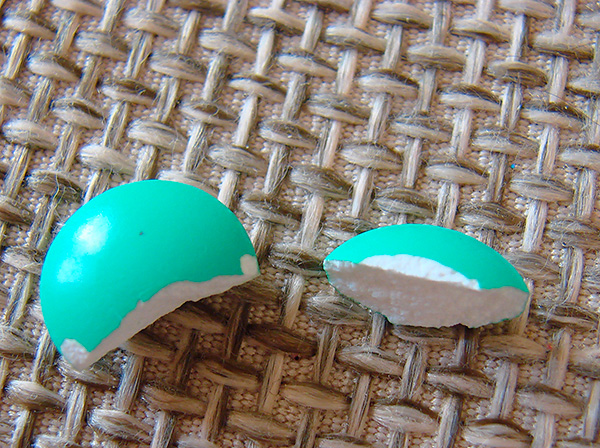
In most cases, the use of toothache pills is necessary in cases where the problem is taken by surprise and there is no possibility to immediately contact a dentist. In addition, it is often the case that severe toothache for some time suffers after visiting a dental clinic - for example, after endodontic treatment (removal of the “nerve” and canal filling) and sometimes even after installing a seemingly harmless filling.
All sorts of painkillers come to the rescue, some of which are already in advance stored in almost every second in the first-aid kit. And it’s no secret that many people use toothache pills, unfortunately, not so much to wait for a visit to the doctor, but to avoid visiting the dentist at all. And why not? After all, it seemed that he had taken a pill, the pain had passed, and everything was fine ...
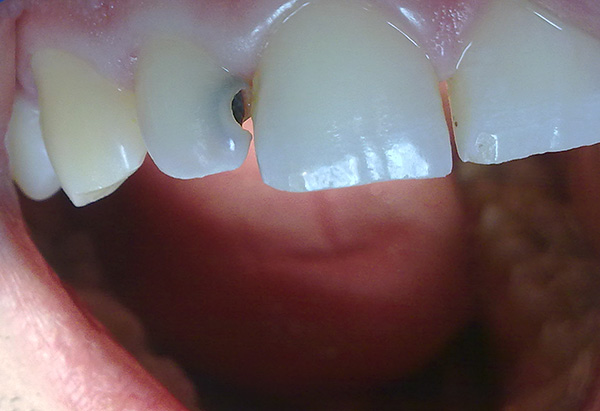
So, before we speak, which pills help with toothache are better, which are worse, and which ones are not recommended to be taken at all - let's first mark three important (you can even say key) points:
- In no case should the use of pain pills be considered a substitute for dental treatment. Painkillers do not cure, but only relieve acute or nagging pain, while the problem that creates this pain does not go anywhere and does not dissolve from the pills by itself. There are many cases where long-term use of painkillers instead of urgent tooth treatment led to the need to remove it. In general, if the tooth hurts, then hurry to the doctor, and the pills will only help you not to suffer too much while waiting for the help of the doctor;
- The second point is that all drugs used for dental and other types of pain have their own contraindications and possible side effects, the list of which is sometimes quite impressive and frightening (especially in the case of powerful painkillers, which we will also discuss below). So, ideally, it is better to carry out the choice of one or another remedy after consulting with a doctor, at least by telephone;
- And, finally, quite often there are situations when, for example, two tablets of the drug have already been taken with a small interval of time, but this does not help, and a strong toothache does not recede. The third tablet, the fourth one is being used ... A person who, as they say, is ready to climb a strong toothache on the wall, wants by all means to get the desired effect as soon as possible, and he is ready to "eat" almost a whole pack of pain pills, just to take the pain away. So, if one or two pills did not help you at all, then you should not swallow them with handfuls, poisoning your liver and the body as a whole with a drug that in this situation is obviously ineffective.
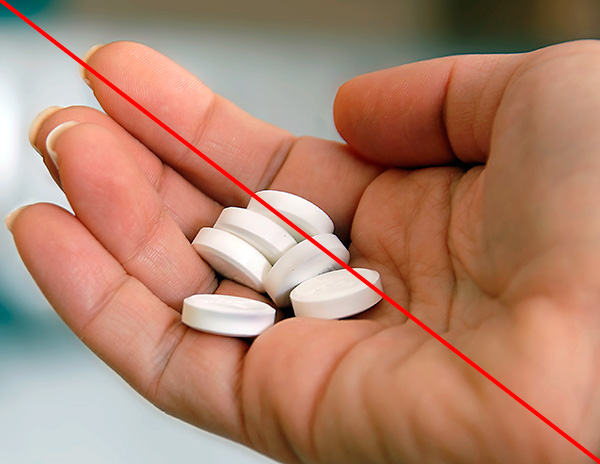
On a note
Due to the individual characteristics of the body, the same anesthetic medication may help different people from pain in different ways - someone is better, someone is worse, and some may not help at all. Well, even if this or that drug does not help or does not suit you due to the existing contraindications, in most cases you can find a worthy alternative.
The good news is that some pills help relieve even very strong toothache caused by inflammatory processes in the pulp chamber or in the tissues surrounding the tooth.For example, sometimes a person may not find a place for a whole day from acute pulsating toothache, and after 20 minutes after taking the pill does not feel even the slightest signs of a problem, there will not be even aching pain - and this has become real thanks to the achievements of modern pharmaceuticals.
And, perhaps, it is worth noting: the following information is not a guide to action or a recommendation to take any pills. Before choosing a drug, consult a specialist.
Popular pills used for toothache
Today, the assortment of almost any pharmacy has a large number of tablets that can be used to relieve toothache. And what is interesting, not all of them are considered to be painkillers among the people - some, for example, are often called antipyretic (and for some it may even be a discovery that such drugs not only effectively relieve fever, but also help with toothache) .
If you make a conditional list of the most commonly used painkillers and arrange them in descending order of force of action, you get something like this:
- Ketans, Ketorol, Ketorolac - are considered the most powerful toothache pills (the active substance is Ketorolac). Allow to remove even very sharp pain, operate till 8 o'clock. Quite toxic, have many contraindications, and therefore in pharmacies are sold only by prescription (prescription is in theory, but in practice, some pharmacies can sell without a prescription). Used in the most severe cases, with severe inflammation, open wounds, after complex operations;
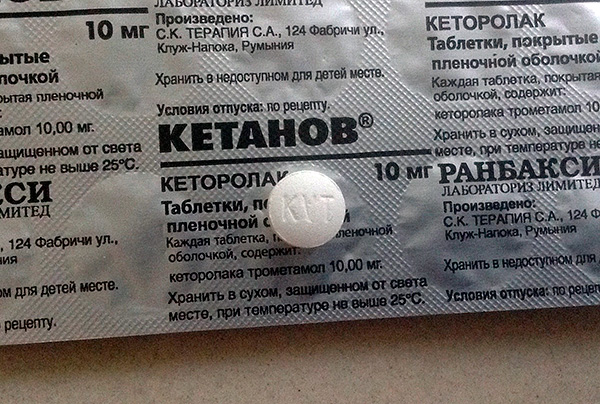
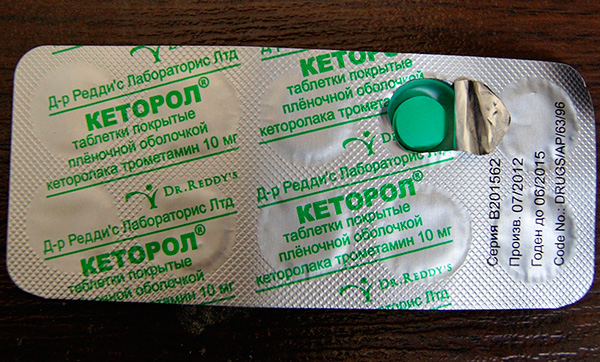
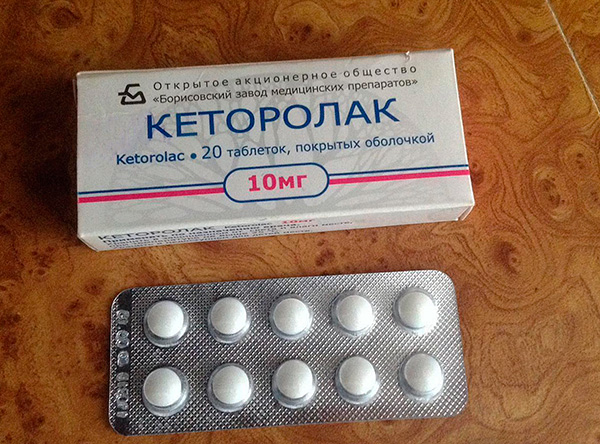
- Nurofen - ibuprofen tablets. Also allow you to shoot a fairly strong pain. In addition, the drug has pronounced antipyretic properties. The analgesic effect lasts 7-8 hours;
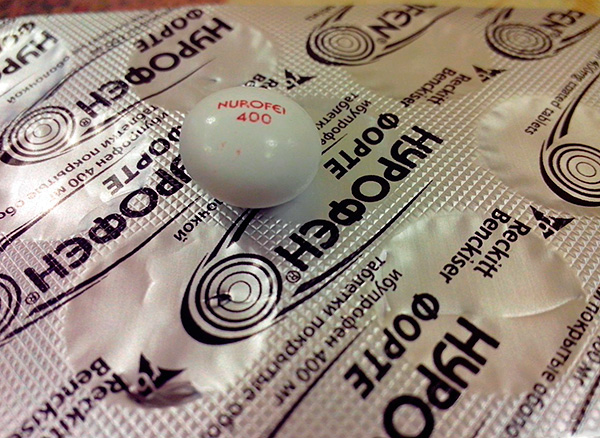
- Nimesil - a drug based on nimesulide. The strength of action is comparable with ibuprofen;
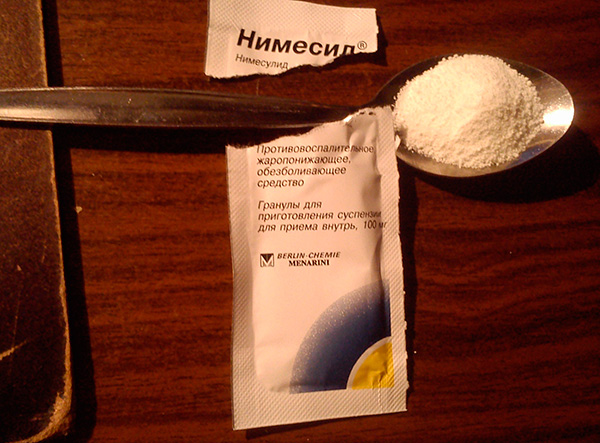
- Nise - it can be said, “classics of the genre”, quite effective toothache pills, which are very popular among the people (the active substance is still the same nimesulide). In case of pulpitis or periodontitis, this drug does not completely anesthetize in most cases, but it will significantly ease pain. The anti-inflammatory effect of the niz tablets is higher than that of Nurofen, but the anesthetic is usually less pronounced;
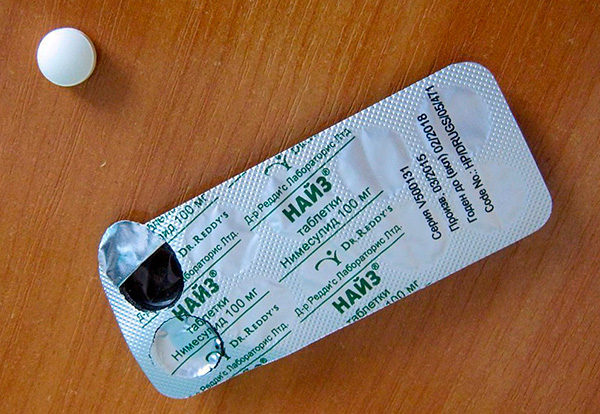
- Analgin (metamizole sodium) is also a very popular drug for toothache, which, however, is hopelessly outdated today and can be dangerous to health (we'll also talk about this a little later);
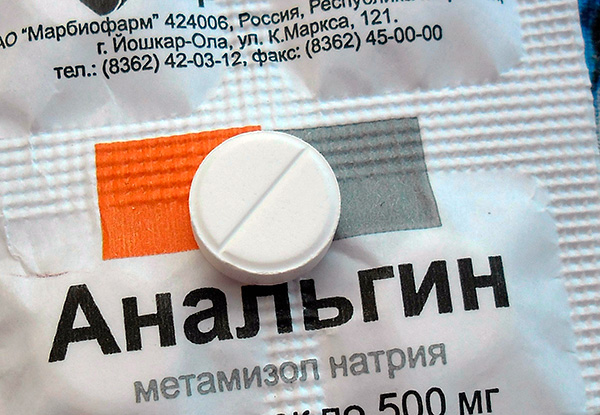
- Tempalgin is an analogue of Analgin, since the anesthetic of the main drug is metamizole sodium. According to the instructions, Tempalgin is used for moderately and weakly expressed pain syndromes;
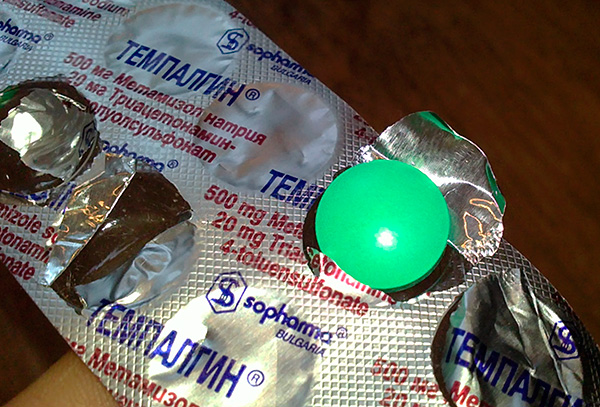
- Paracetamol - this drug is usually used primarily as a febrifuge, but not everyone knows about its analgesic properties (the active ingredient is para-acetylaminophenol). Meanwhile, although Paracetamol is generally inferior to the Nise tablets in terms of the effectiveness of the analgesic effect, however, it is quite capable of alleviating toothache with moderate force. In addition, such toothache pills can also be given to children (after consulting a doctor);
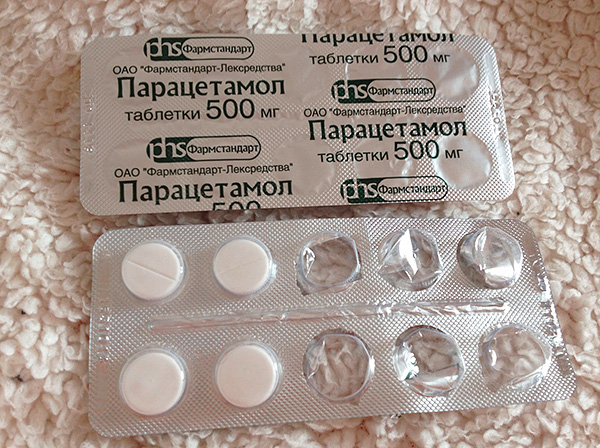
- Aspirin (acetylsalicylic acid) is also used primarily as an antipyretic drug, and has a weaker anesthetic effect compared to the above mentioned agents. For example, according to the results of research, to the same Ketanov aspirin is inferior in strength to the analgesic effect by about 350 times.
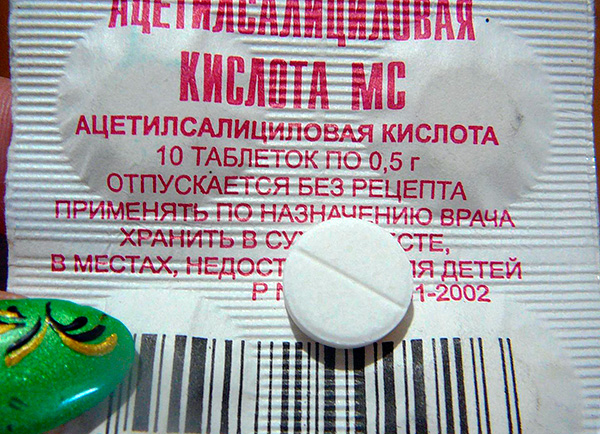
Once again, we note that the effect of taking certain pills can vary greatly - depending on the clinical situation, the characteristics of the organism, and even on the person’s current emotional state.
For example, there are rare cases when the same Nurofen does not help to get rid of a sharp toothache, and Nise works. Therefore, the above list of painkillers should be considered only as an approximate guideline, and you should be prepared for the fact that sometimes even relatively weak painkillers help well in acute pain, and vice versa, stronger tablets may not help relieve toothache.
What is useful to consider when using painkillers
As noted above, in case of acute toothache, instead of regularly taking pills, you should contact your dentist as soon as possible. It may seem to someone that for this you need to first call, make an appointment, and then wait a few days, when the queue comes up. In fact, everything is much simpler - with acute toothache, dental care is provided in district clinics immediately,that is, without a record (and in some institutions such assistance is provided at any time of the day).
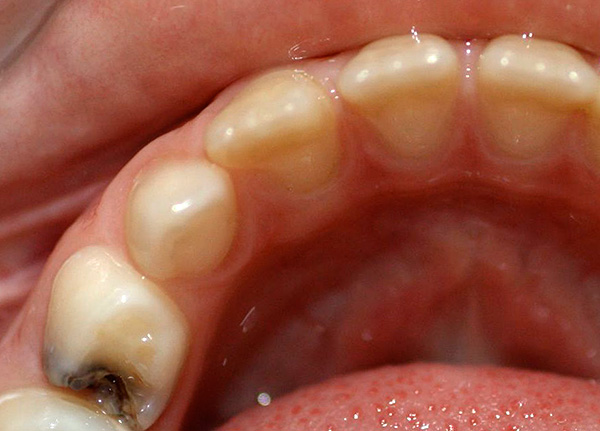
And it is not at all necessary to carry out all the treatment in the clinic. Emergency care can be obtained in the clinic (for example, they open up a festering area, put drainage, give useful recommendations), and if you really want to finish the treatment as qualitatively as possible, then later, when you feel better, you can safely sign up for a business-class dental clinic.
On a note
Generally speaking, the high intensity of toothache is often an indicator of the need for urgent provision of appropriate assistance, because if there are serious violations in the tooth - until you sign up, until you accept it - it may no longer be a treatment, but a tooth extraction. It makes sense to register in cases where, due to circumstances, there is no way to immediately see a doctor.
Further. In those cases, when a wisdom tooth that is difficult to erupt grows and hurts, the gums inflame and swell over it, it makes no sense to constantly take painkillers and wait for the weather “at the sea,” that is, when the tooth finally cuts and the pain disappears.Fatal cases are known, which are a consequence of not provided assistance in time for pericoronitis (complex wisdom tooth eruption).
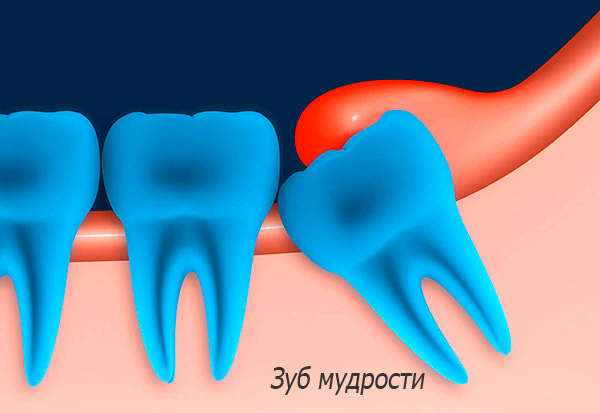
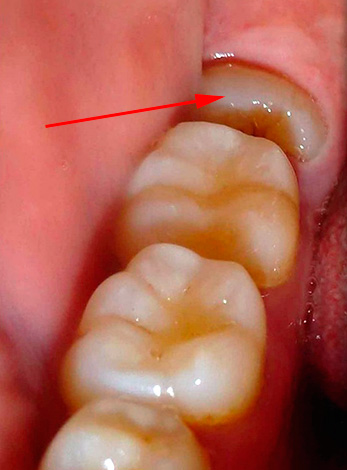
In pregnancy, Paracetamol is approved from a pill for relieving toothache according to the testimony of a doctor. For children older than three years, depending on age, give Nurofen for children, or paracetamol preparations (Panadol for children or analogues).
Analgin is outdated and may be hazardous to health.
Despite the popularity of the people and a more or less pronounced analgesic effect, Analgin for relieving toothache better not to take at all.
It is clear that, compared with many other means, Analgin is a very inexpensive pill (their price is only about 50 rubles per pack of 10 tablets). However, the possible side effects of using this drug represent a serious health hazard that no savings can justify.
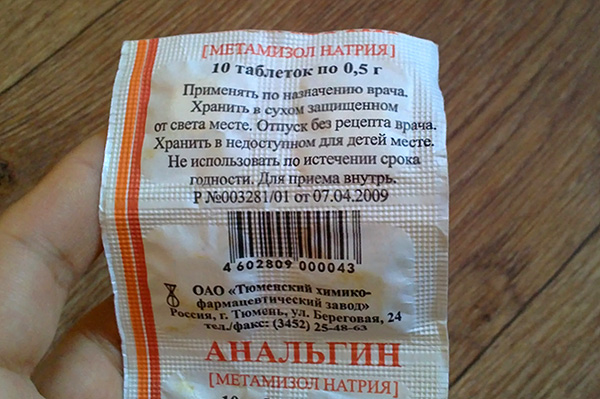
The fact is that metamizole sodium (the base of analgin) can cause the so-called agranulocytosis - a blood disease accompanied by a strong weakening of the immune system. According to statistics, even with the correct treatment, the mortality from this disease is about 7%. It is because of this, in many civilized countries of the world Analgin is forbidden to use and taken out of circulation.
Nevertheless, in our country, Analgin continues to be sold. In addition, based on metamizole sodium, other, also very well-known anesthetics are also available:
- Tempalgin - the famous green toothache pills. Their active component is metamizole sodium, with all the ensuing consequences and side effects (in particular, Tempalgin should not be taken by people with hematopoietic disorders);
- Took tablets, from toothache used rarely enough;
- Pentalgin-H;
- Spazmalgon.
Be that as it may, Analgin and all its analogs have a relatively weak analgesic effect. If you decide to take these drugs, then only with moderate toothache, or in the absence of other drugs available (for example, somewhere in the village).
You can not use Analgin during pregnancy, lactation, disorders of blood, liver and kidney failure, as well as in alcoholism.
If possible, then instead of Analgin is always better to use another tool.
Feedback
“I somehow got used to taking tsitramon from a headache, and analgin from a toothache. It is enough to hold a half-pill in the mouth near the patient's tooth, after about 10 minutes the pain is already beginning to subside. My wife constantly uses it from the head, so that he is in our first-aid kit constantly, like activated charcoal. ”
Stepan, Pskov
Aspirin - antipyretic with a weak analgesic effect
Generally speaking, Aspirin (acetylsalicylic acid) tablets are known primarily as a febrifuge. By the strength of its analgesic effect, Aspirin is even slightly weaker than Analgin, but it does not have such serious contraindications. When a toothache it is sometimes useful to take it also in cases of inflammation due to a pronounced anti-inflammatory effect.
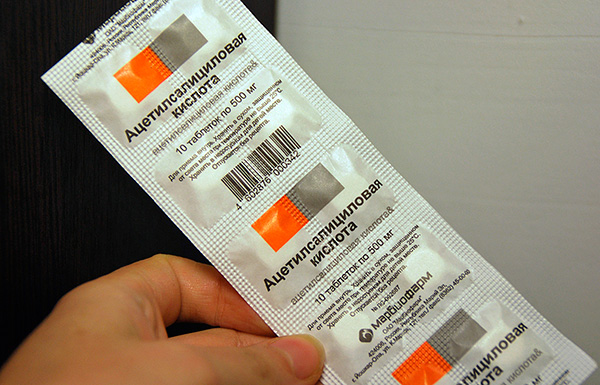
On a note
However, one should not cherish the hope that with pulpitis, Aspirin tablets, due to their anti-inflammatory properties, will relieve the inflammation of the neurovascular bundle in the pulp chamber of the tooth - even the “horse” doses of the drug are incapable of it, except to somewhat lower the level of intoxication and pulp edema.However, the drug does not stop the irreversible changes in the pulp, and it will still be necessary to treat the canals.
As with Analgin, Aspirin tablets are very cheap. Therefore, in case of moderately severe toothache, many people prefer to use them (often this is also due to the fact that people don’t want to poison themselves with “strong chemistry”).
Aspirin should not be taken during pregnancy, as well as in conjunction with the use of alcohol. In the latter case, even normal doses of the drug can lead to severe disruption of the gastrointestinal tract, bleeding.
Feedback
“For me, so good old aspirin is the best remedy not only for temperature, but also for toothache. How many times was it that the tooth was sick at the weekend, and with aspirin no problems. I drank and forgot ... "
Tatyana, Omsk
Ketanov, Ketorol and Ketorolac - powerful pain pills
These drugs are one of the most powerful toothache pills that can be more or less freely purchased at the pharmacy. Often they are prescribed even after heavy operations for a more comfortable passage of the postoperative period.
The basis of the drugs Ketanov, Ketorol and Ketorolac is the same active ingredient - Ketorolac, which provides a well-pronounced analgesic effect for about 7-8 hours. Accordingly, with the proper use of funds can often be limited to taking 2 tablets per day.
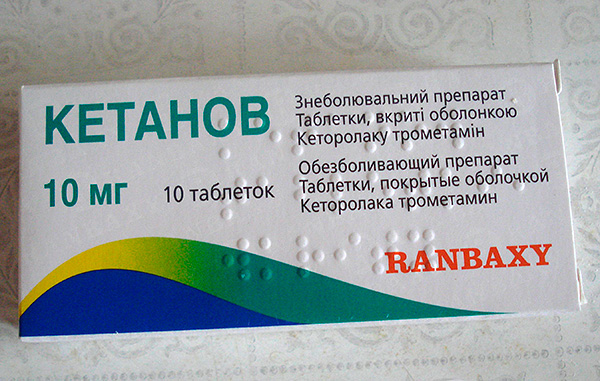
On a note
Due to prescription leave, even with acute toothache, tablets of this group of drugs can usually be bought only after a visit to the doctor. Often, after a tooth is removed, painkillers prescribe these drugs to relieve pain that occurs after the cessation of anesthesia.
Means based on Ketorolac are contraindicated during pregnancy and lactation, children under 16 years old, with sepsis, aspirin asthma, renal and hepatic insufficiency, hematopoietic disorders, ulcers, hemorrhages, as well as with polyps on the mucous membrane of the nasopharynx.
The side effects of these pills are enormous: from abdominal pain and the presence of blood in the urine to the development of gastric and intestinal ulcers, hearing impairment and bronchospasm. Therefore, the reason for the appointment of Ketanov, Ketorol or Ketorolaka should be very significant.
Feedback
“I was at the dentist last week. In general, suddenly rattled there. In the morning there was a sharp toothache, saw niz and paracetamol, but the pills did not help, rinsing too. It is good that the doctor had a window. Immediately removed the nerve, put a temporary filling, but I do not know why after that the tooth ached even more. The doctor explained that this happens, prescribed a prescription for Nimesil, but I asked the Ketans at the pharmacy because my husband said he was stronger. Ketanov really helped, one pill was enough for the whole day. ”
Oksana, Moscow
Tablets Nise - a classic for toothache
Nise today is one of the most popular toothache pills. In many ways, people's love for them is due to a combination of four factors:
- Nise works well against toothache;
- relatively cheap;
- sold in pharmacies without a prescription;
- and the drug does not have such an extensive list of contraindications and side effects, as is the case with the use of more powerful tools.
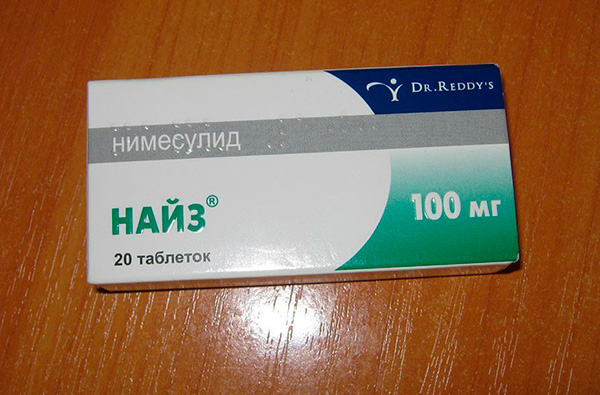
In terms of the analgesic effect, Nise is generally inferior to Ketorol and even Nurofen, but significantly exceeds Analgin, Paracetamol and Aspirin (although you shouldn’t forget about cases of individualsensitivity to a particular drug, when, for example, Nise does not help, and Paracetamol relieves pain "with a bang").
Judging by the numerous reviews, often tablets Nise help remove even the most acute episodes of toothache.
Do not use Nise during pregnancy and lactation, children under 2 years old, as well as in case of renal failure.
Feedback:
“Nise is a very good pill. Although such a strange name. The last time I caught a tooth at work, such a pain was hellish that straight sparks fell from my eyes. Colleagues gave niz, accepted - and that's it, in half an hour, even when biting, the tooth did not hurt! The shift worked fine, and in the evening I was already at the dentist ... "
Vera Ilyinichna, St. Petersburg
Paracetamol
Again, it is worth noting that Paracetamol is more often used as a febrifuge, rather than as a pain reliever.
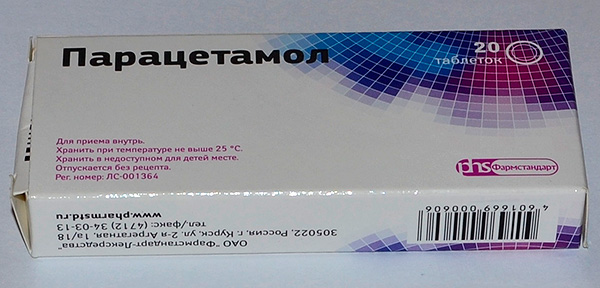
By the strength of its analgesic effect, Paracetamol is inferior to the Nise tablets, but, so to speak, it acts more delicately - it can be taken even in infants (preferably, however, in the form of syrup or suspension, and not tablets). An important advantage of paracetamol preparations is the absence of a large number of side effects characteristic of many other painkillers.
Thus, from acute toothache Paracetamol helps weakly. Its scope of application - pain syndromes of moderate severity.
Feedback
“The worst thing about removing a nerve from a tooth - it is not the removal itself, but the waste after it. When the freeze stops working, all the places are pricked wildly, the tooth doesn’t give anything pleasant either, my temperature even rose to 37.5, it was impossible to bite. Personally, I was helped by the usual paracetamol, which we gave little to the flu. I had to take it twice, once about two hours after the dentist, and the second time the next day in the morning. The effect is felt in about half an hour and then lasts for a long time. ”
Maxim, Odessa
If you have personal experience with using any drugs to relieve toothache, be sure to share it by leaving your review at the bottom of this page: what remedy was used and whether it helped you relieve pain, or, conversely, turned out to be practically useless.
Useful video: how sometimes you can quickly relieve toothache at home without pills
But what do those who do not want to go to the dentist (do not repeat ...)

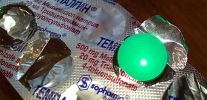
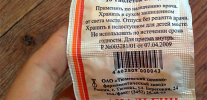
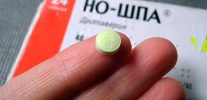
I'm afraid of a dental one, because a healthy tooth has been pulled out instead of a patient!
Hello! I am pretty sure that the doctor removed the “wrong tooth” for the reason that it was badly damaged by caries (rotten), and at the time of the removal it was difficult to understand which particular tooth from the two adjacent ones causes the main problem.
A dentist, if he is not crazy, will not pull out a healthy tooth, however, it may well be mistaken in a situation where the choice occurs between several destroyed teeth. Here is the most standard, very often occurring situation at the reception at the dentist-surgeon: in the area to which the patient points, 2-3-4-5 teeth are present immediately with the crown part destroyed to one degree or another. At best, there are some clues at the instrumental examination, and at worst - the patient, roughly speaking, “oykat” even with a light touch on any of the group of teeth in question. The images often show inflammation on the roots of several teeth at once, and there are many situations when the doctor can choose a tooth with a cyst to remove the image, and a pulping tooth standing next to it (that is, the tooth in which the nerve - such a tooth is often not necessary to remove, but rather only endodontically treat). However, for the patient it looks like this: the doctor removed the tooth, and the pain remained - it means that the doctor removed the “wrong” tooth.
As you already understood, this situation is not as simple as it might seem at first glance.
The pharmacist advised Algezir Ultra. I forgot what a toothache is. Took only 6 pills in 10 days. The problem is that now I can not find this painkiller.
After a complex removal, the doctor recommended a pain reliever, and ibuprofen as an anti-inflammatory. Saw Ibuklin (paracetamol with ibuprofen in one tablet). It helped me.
Very long article, too much information. And my tooth hurts, why can't I just write me a list and actions of the drugs! This is easier.